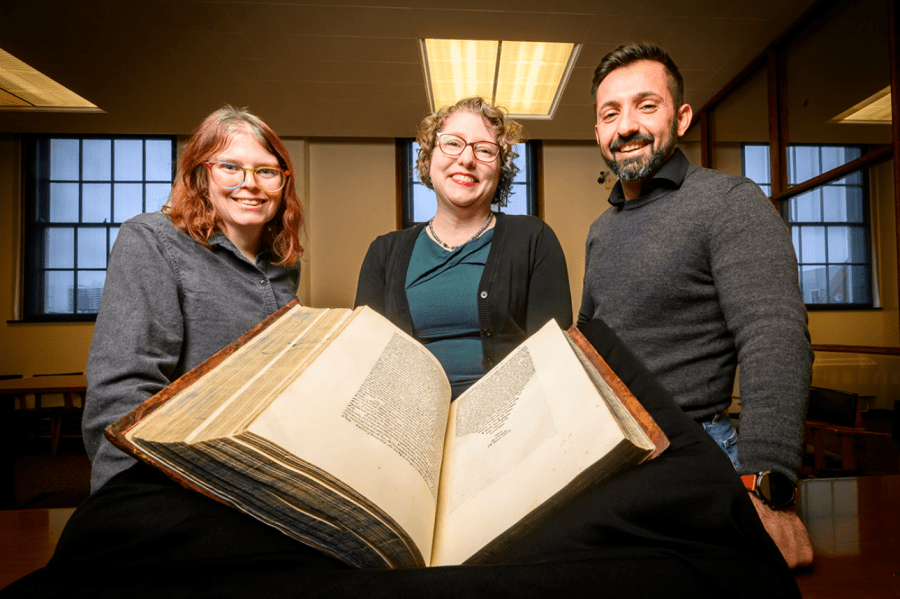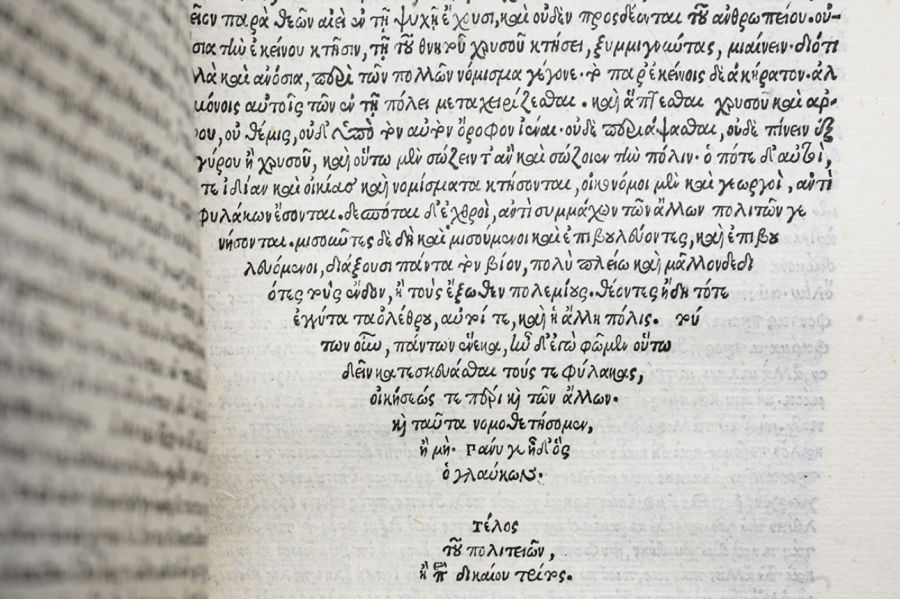UI library gets rare first edition of Plato’s works
- Oops!Something went wrong.Please try again later.
URBANA, Ill. (WCIA) — The University of Illinois’ Rare Book and Manuscript Library (RBML) has purchased a “mint condition” first edition of the works of legendary Greek philosopher, Plato.
The RBML, the Literatures and Languages Library’s classics collection, and Chicago donors George and Jamie Reveliotis each had a hand in helping acquire the more than 500-year-old book.
Ancient philosophy expert Kirk Sanders is a professor of both classics and philosophy. He said it is believed that Plato wrote around 200 volumes, yet around 40 are left in existence — including the one now in the U of I’s possession.
Signature Image chosen for 2024 Boneyard Arts Festival
“This was part of a conscious attempt to make accessible in their original language the entirety of the works of Plato for study,” Sanders said. “It was incredibly important for reigniting interest in the study of Plato in the West. It was dedicated to Pope Leo X in the hope that he would be the savior of classical studies and establish something like a new Platonic Academy.”
Plato’s book was printed in Venice in 1513 by one of the biggest printing houses of the time, Aldine Press.
“It was the beginning of a flourishing of classical studies, and this work contributed to that in great measure. One can’t overestimate the importance of the work in its time and place and what it did for classical scholarship,” ancient philosophy expert Kirk Sanders said.

The founder of Aldine Press, Aldus Manutius, pioneered many technological innovations. For example, he introduced the use of punctuation like the comma and semicolon, said Elias Petrou, the Literature and Languages Library’s librarian for classical studies, medieval studies and modern Greek studies.
Some of his advancements can be found in the RBML’s newest addition. Manutius created smaller, more portable books as compared to massive books that had to be read in the same place they were kept. He used italics — which he is also credited with creating — and compressed paper to save space. Petrou said that although Plato’s book seems large, it is actually considered small for its time.
EIU pushes Decision Day back after changes in student aid application
In addition to this, Manutius created new, handwriting-based typographical characters made specifically for printing this volume. The process of creating the typeset itself may have taken up to a decade, Petrou said.
RBML curator Cait Coker added that printing the book in Greek would have been quite an endeavor.
“One of the things that is extraordinary about it is that the Greek typography is really challenging because of all the accents. The letter ‘a’ has 46 different versions,” Coker said. “Despite the difficulties of developing Greek typography, Greek literature was very important, and its classical texts were standard bodies of work read by scholarly people.”

As the book was made for scholarly study, the text is placed in the middle of the pages, with wide margins to allow space for jotting down notes.
Very few notes have been written in the U of I’s book. Officials said that other than being rebound in the 17th or 18th century, the book is in its original condition.
“This is in mint condition. It looks like almost no one touched it,” Petrou said.
Petrou is excited for students for interact with this slice of ancient history.
“This is one of the flagships, and we are looking forward for many things to happen,” he said. “I believe that through this, we are going to attract more scholars here and have them start on Plato in person. That’s our purpose.”
The U of I’s mill shop is currently in the process of making a new travel case for the volume. Before making its campus debut in May, Plato’s book will be showcased in Chicago’s National Hellenic Museum on Feb. 10 — just after the International Day of the Greek Language on Feb. 9.
For the latest news, weather, sports, and streaming video, head to WCIA.com.

